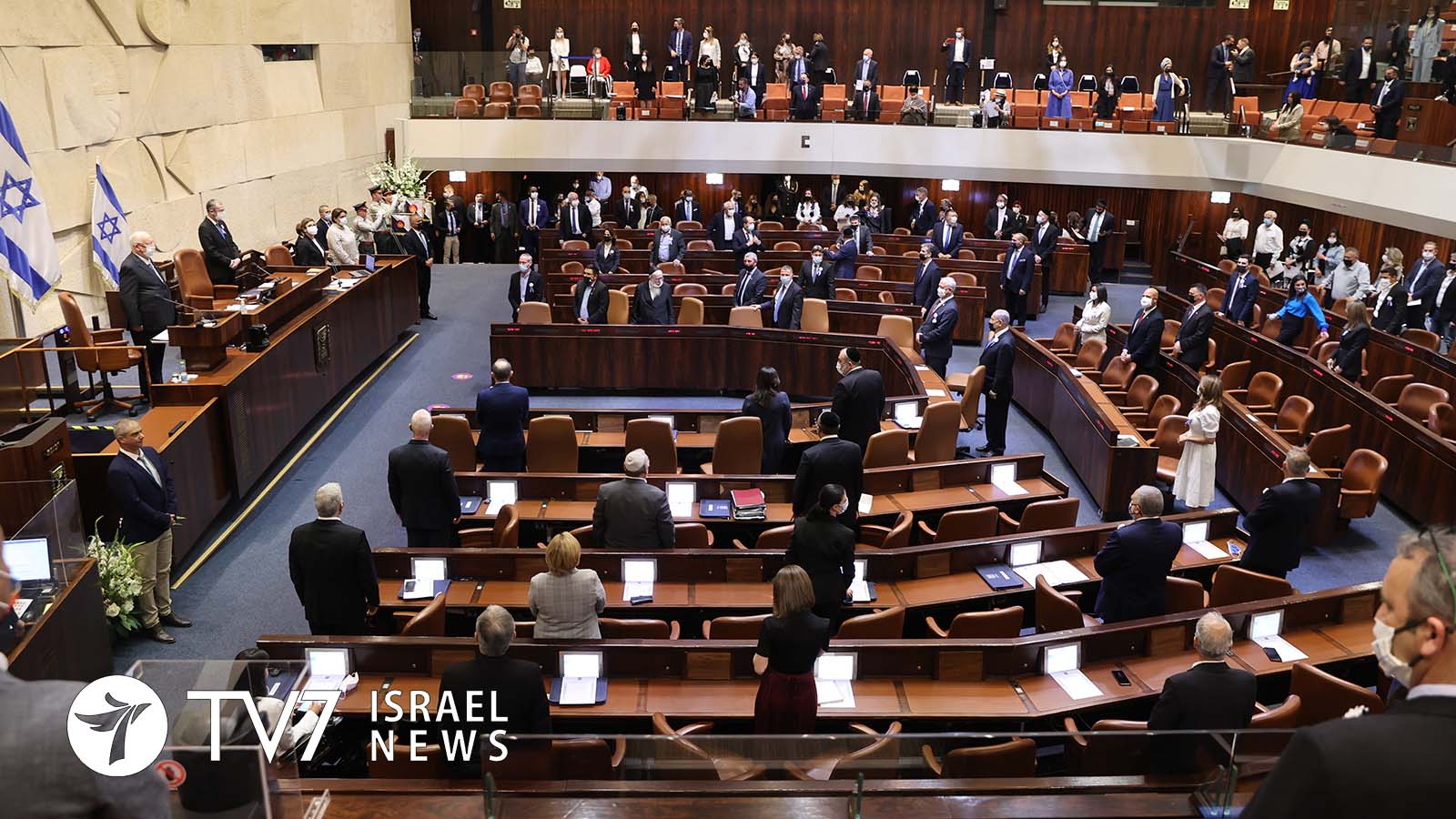120 Members of Knesset (MKs) have taken the oath of office to become the 24th parliament in Israeli history.
An honor guard overseen by Knesset Speaker Yariv Lavin greeted the new MKs, who belong to 13 separate parties elected in the 23 March election.
Easing of coronavirus restrictions permitted each MK to invite one guest, who were seated in the visitors’ gallery that was opened for the first time in over a year.
An often-emotional President Reuven Rivlin presided over the swearing-in ceremony shortly after tasking Prime Minister Benjamin Netanyahu with forming the next government. In his announcement, Rivlin said Netanyahu was appointed since he “has a slightly higher chance of forming a government” but cast doubt on his prospects for success in attaining a simple majority of 61 MKs to form a coalition.
In an apparent references to deep political divisions as well as Netanyahu’s ongoing prosecution on corruption charges, Rivlin later tweeted “This is not an easy decision on a moral and ethical basis, in my mind. As I said at the beginning of my remarks, the State of Israel is not to be taken for granted. And I fear for my country.”
During his address to the plenum, Rivlin noted that there have been an unprecedented six Knessets over his seven-year term in office.
“If we are not able to find a new model of partnership that allows us to live together here in mutual respect and genuine shared commitment to each other, our national resilience will be in real jeopardy,” he cautioned.
“Today, I am before a parliament that has dissolved itself four times in less than two years. A parliament that has relinquished, time after time, the right to express its confidence in the government,” said President Rivlin.
After acknowledging that “The disagreements that divide our society are genuine differences,” he told the new parliamentarians “The Israeli people looks to you and expects each one of you to show leadership, and it is not something that is expected only of the Knesset Member entrusted with forming a government or the new president you will elect, but of each one of you as representatives and leaders of the people.”
President Rivlin urged the MKs to demonstrate “The kind of leadership this moment demands. Leadership that is faithful to the people and their values, but that also knows how to mark boundaries and show the way. Leadership that is confident in its path, but that sees ideological rivals not as the enemy, heaven forbid, but as potential partners.”
“My dear ones, I believe in this people. I believe in it because that is the lesson history, ancient and modern, has taught me. I believe in it because this people has proved its might during this plague. I believe. Believe yourselves, too,” said Rivlin. He concluded his address with recitation of Ezekiel 37:22, 26, saying: “Believe in the words of Ezekiel: I am going to take the stick of Joseph which is in Ephraim’s hand, and of the Israelite tribes associated with him, and join it to Judah’s stick. I will make them into a single stick of wood, and they will become one in my hand. … I will make a covenant of peace with them; it will be an everlasting covenant.’ Bless you.”
Knesset Speaker Levin followed with a series of warnings of his own. Even though “democracy has been, and continues to be, a better system than any other,” he cautioned that increasing public distrust stemming from 4 national elections since April 2019 present a “great danger” to Israel as well as “democracy itself.”
Solemnity marked the generally festive Knesset service due to increasing concern that the deep political divide on the Israeli political may not be bridged, compelling the holding of a 5th election. Despite membership in the Prime Minister’s Likud party, discord with Netanyahu is believed to have led Rivlin to forgo the customary sit-down with him, Knesset Speaker Levin and Supreme Court Chief Justice Esther Hayut. Rivlin also chose not to be join the traditional photograph of party leaders.
Likud MK Shlomo Karhi reacted to Rivlin’s actions by refusing to attend the President’s speech at the opening of the Knesset. “Those who boycott the prime minister of Israel — who is the candidate who received the most recommendations – belittle the ceremony of giving the mandate to form a government and trample on democracy and the votes of two million voters, are not worthy of being honored in Knesset,” he tweeted.
Divisiveness also marked the swearing-in ceremony itself.
Rather than stating the requisite “I commit” to the oath of office, MKs Ayman Odeh, Sami Abou Shahadeh, Aida Touma-Sliman and Ofer Cassif of the Arab-majority Joint List faction instead declared allegiance to “fighting occupation and apartheid” in open condemnation of Israeli policy toward Palestinians. Speaker Levin said refusal to make the proper loyalty pledge at a later time would negate some of their rights as MKs. The same parliamentarians also marched out of the Knesset plenum when Israel’s national anthem “HaTikva” was performed.
MK Itamar Ben-Gvir of the far-right Religious Zionist party insisted that, “According to the Basic Law of the Knesset, MKs must pledge allegiance to the State of Israel,” adding that since the Joint List oaths were “illegal,” the members should be sent “to parliament in Ramallah or Gaza.”
Left-wing Meretz MK Tamar Zandberg reportedly called out “shame” while making her own loyalty oath.
